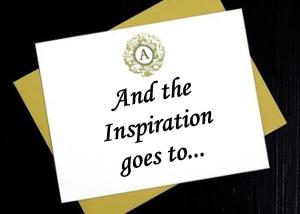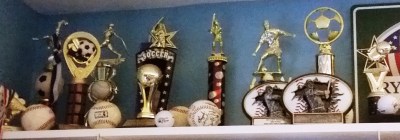There were some inspiring acceptance speeches given at last night’s Oscars. From Patricia Arquette to Graham Moore, several recipients chose to speak their hearts, and it made the very long telecast that much more compelling.

John Legend and Common’s performance of “Glory” was absolutely beautiful, and when they accepted the Oscar for Best Original Song, their words spoke to my heart. Common recalled performing the song at the Edmund Pettus Bridge in Selma, Alabama and how the bridge was “built on hope, welded with compassion, and elevated with love for all human beings.” Powerful and eloquent.
In 2015, we still need to cross that bridge. We have not yet made it to the Promised Land.
Back in 2013, I wrote a post titled “My Problem with Tolerance.” Though it is neither powerful nor eloquent, I am sharing it again here because it expresses my thoughts on one of the things I think we need to acknowledge if we are ever going to completely cross that bridge.
Don’t you think it’s time?
Originally posted on October 14, 2013.
My Problem with Tolerance

Please note: this post may have an idea or two that you are not comfortable with, along with an extreme overuse of quotation marks and italics. There may also be some rambling. Proceed at your own risk.
I have an issue with the notion of “tolerance” as a way of coexistence.
When I hear people who are “in favor of tolerance,” I wince a bit. Why?
Here’s my issue: tolerance, by way of definition is a capacity to endure pain or hardship…sympathy or indulgence for differing beliefs…the act of allowing something…the allowable deviation from a standard.
Tolerance implies “permission” from an “authority” or “sympathy” for the different. I find it condescending.
I don’t want tolerance. I need acceptance.
Now, for me, there are times the word tolerance is spot on. For instance, I will use it with my son (“I will not tolerate your using the dog like a wheelbarrow”) because I am an authority figure (most days) for him, trying to set healthy boundaries. Other instances where this word makes perfect sense is in not tolerating abuse of others or the breaking of a law. As the definition goes, these things deviate beyond the standard. I have no issues with not tolerating pedophiles or rapists or anyone else who hurts another.
But it’s not up to me to tolerate another person’s race, religion, age, national origin, marital status, sexual orientation…or any other kind of law-abiding “type.”
It is not mine to offer “sympathy” for what might be different from me. Who am I to tolerate another person’s nationality? And on the flip, who is tolerating mine? Should I breathe a sigh of relief that I don’t hear so many mafia jokes now that The Sopranos is off the air?
To me, it all boils down to Differentism. It’s the one ism that encompasses all the other discriminating isms—because all of them are about being different in one way or another. And what is at the core of Differentism? Fear. Fearing that which is different from you. (Or that you at least think is different from you.)
To me, it is fear that causes so much pain.
Cultures that oppress women and deny girls an education…what on God’s green earth would be a legitimate reason for wanting to keep someone uneducated? Why wouldn’t we be cheering for the support of raising up more women like the young Malala Yousafzai? The more we educate everyone, the better our overall world will be. Why would anyone want to keep another in the dark if not for fear?
Of course, the answer might also be “hatred,” but that is rooted in fear, too, isn’t it?
We fear what we don’t know or understand.
The one thing I see that helps overcome this is…learning. Talking. Connecting. Striving to understand. Realizing we are more alike than different. And while that which is different may not be our cup of tea, it’s not ours to throw stones at, either. Or to “put up with.”
As an American, I am blessed to be a part of a country that reflects the faces of many nations. Unless you are a Native American, your ancestry will cross at least one border. It’s a huge part of what makes us who we are. Our country is not a pedigree but a mutt (and if you’re a dog fan, you know that pedigrees can be sickly and quirky due to keeping the blood so “pure,” but mutts are strong and full of personality). Why are there those of us who see it as “us vs them”? We are both!
But I don’t want America to be a melting pot. You know why? Because it takes and makes everything into one thing—it boils it all down and blends it all up. I want America to be a delicious salad with all sorts of ingredients tossed together that enhance the whole dish. Together better than apart. But not all homogenized–still with the qualities that make us who we are. That shouldn’t just be the American Way, but the way of the world…at least according to me.
We don’t need to tolerate one another. We need to understand, love, support, help, and even celebrate one another.
If you’re still reading this rambling manifesto, go pour yourself a glass of wine (or beer. or vodka. or one of each. or more). You deserve it. But I hope that my tossed salad offers some food for thought about the nuances of the words we use when we talk about one another.
I don’t want you to tolerate me. I hope that you can accept me as I am: a goofy, flawed, work-in-progess.
And I’ll do the same for you.
Please note that there may be advertisements below via WordPress.com.
The presence of these ads does not constitute endorsement of the information, services, or products found in them.










